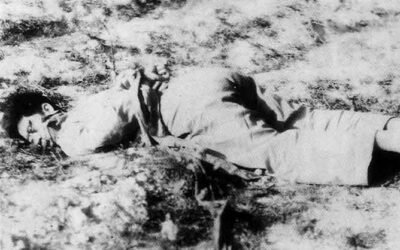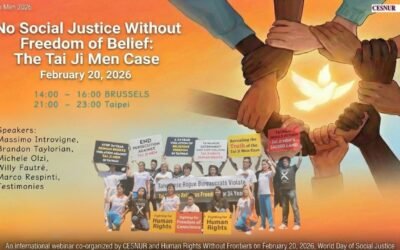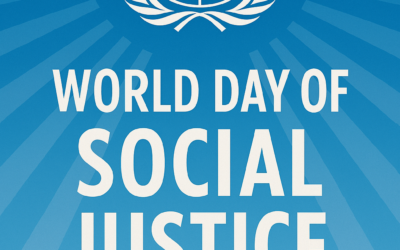International scholars and Tai Ji Men dizi celebrated Human Rights Day by reflecting on “human wrongs” in Taiwan and internationally.
by Daniela Bovolenta

On December 10, 2024, United Nations Human Rights Day, CESNUR and Human Rights Without Frontiers organized one of their monthly webinars on the Tai Ji Men case. The title chosen was “The Tai Ji Men Case: Human Rights vs. Human Wrongs.”
Michele Olzi, a teaching assistant at Italy’s University of Insubria, chaired and introduced the first session. He discussed the notion of freedom of religion or belief (FoRB) in the two United Nations Human Rights Covenants. Olzi relied on the work of American political scientist Jack Donnelly to argue that human rights are not moral values only. They are legal “entitlements” that found claims any citizen may enforce towards the state. These “entitlements” were denied to Tai Ji Men, Olzi stated, at least three times: when the fabricated case was started in 1996 and continued; when based on an ill-founded tax bill sacred land belonging to Tai Ji Men and intended for a self-cultivation center was confiscated, unsuccessfully auctioned off, and nationalized in 2020; and when the Taichung High Administrative Court failed to rectify the past injustices on August 2, 2024.
Olzi presented the video of UN Secretary General António Guterres for the 2024 Human Rights Day. Guterres stated that the day of observance reminds us of a sad truth: human rights are increasingly violated throughout the world. He also insisted that human rights are indivisible: if one is denied, all are denied.
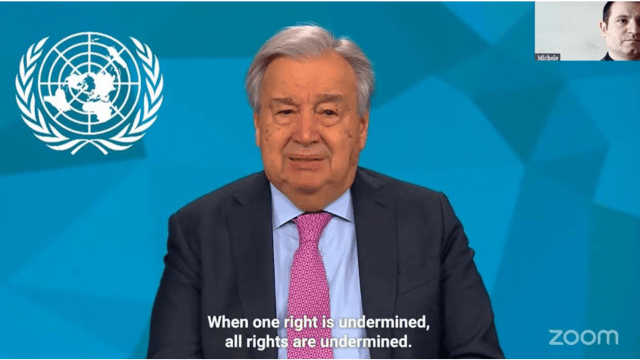
Olzi then introduced the two speakers of the first session, Massimo Introvigne, an Italian sociologist and the managing director of CESNUR, and Hans Noot, president of the Dutch Gerard Noodt Foundation for Freedom of Religion or Belief.
Introvigne discussed the etymology of the word “rights” in Indo-European languages, which comes from a root “reg,” dating back to Neolithic times. It means “straight” and also “straightening” what is twisted—in both a physical and a moral-political sense. From the same root came the Latin word “rex,” meaning “king,” to indicate that political rulers are there to “rectify” what is wrong. This remains true for modern states, Introvigne said, but is spectacularly denied in the Tai Ji Men case in Taiwan. Where there is a widespread consensus that what was done to Tai Ji Men was wrong, Taiwan missed repeated opportunity to rectify the situation and make the wrong right.
Noot noted that human rights are violated today through persecution, violence, wars of aggression, and the manipulation of refugees and denial of protection to them. Freedom of thought and freedom of religion or belief are also systematically violated. A case in point is represented, Noot said, by the almost three decades of persecution of Tai Ji Men. All forms of persecution should be denounced, Noot concluded, but they are particularly appalling when they target groups such as Tai Ji Men that are universally respected for their good work on behalf of peace, conscience, and human rights.
Willy Fautré, co-founder and director of Human Rights Without Frontiers, chaired the second session and introduced a video featuring a story first reported around the year 200 CE. Zhou Qing became a widow just after marrying. She chose not to marry again and care for her mother-in-law. The latter felt guilty and committed suicide. Her sister-in-law accused Zhou of having killed her. Despite her innocence, she was tortured, sentenced to death, and executed. A serious drought then affected the city. It only ceased when a new magistrate rehabilitated Zhou and apologized for his predecessor’s and the city’s injustice.
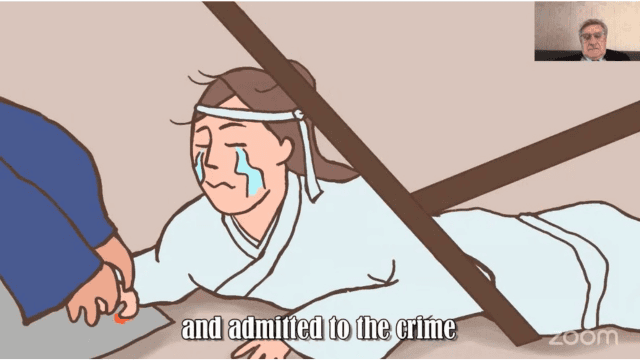
Fautré then listed seven “human wrongs” in the Tai Ji Men case. First, the start of the fabricated case. Second, the unjust detention of Tai Ji Men’s Shifu (Grand Master), Dr. Hong Tao-Tze, his wife, and two dizi (disciples). Third, the invention of a false association of “victims” of Tai Ji Men. Fourth, the fabrication of tax bills by compelling a tax collector (who told the truth before dying) to lie about his alleged investigation of Tai Ji Men. Fifth, the illegal nationalization of Tai Ji Men’s sacred land. Sixth, the arrest of a peaceful demonstrator, Mrs. Huang, who was protesting against the unjust case in 2020. Seventh, the already mentioned August 2, 2024, decision of the Taichung High Administrative Court.
Fautré then introduced five Tai Ji Men dizi who testified about their experiences. Rita Shen, a junior high school teacher, reported how she struggled with students who refused to admit their mistakes, until she devised a method to guide them to gradually rectify their behavior. A school, Shen said, is a microcosm of society. In Taiwanese society too there are politicians and bureaucrats who refuse to admit their mistakes. As the Tai Ji Men case demonstrates, however, the actions of these social “bad students” are not rectified. Rather than punished, they are promoted, as it happened with Prosecutor Hou Kuan-Jen who started the fabricated Tai Ji Men case and repeatedly violated the law.
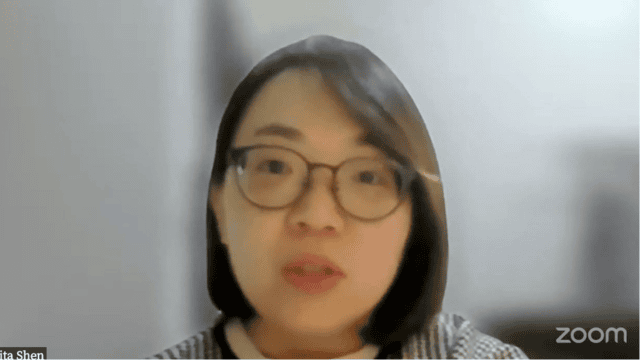
Jerry Kan, a university student specializing in sports and leisure, noted that in his field integrity and fairness are crucial. So should they be in society in general. Unfortunately, Kan said, in the Tai Ji Men case integrity and fairness were violated for years, both at the administrative and legal levels. The Tai Ji Men case led Kan to take an interest in other issues of tax injustice such as the one involving Huang Wen-Huang. He tried to serve with integrity as estate administrator for abandoned inheritance cases but was unfairly targeted and accused by tax authorities. Tax injustice in Taiwan, Kan concluded, is systemic and can only be rectified by acknowledging conscience as the basis of all just legal systems.
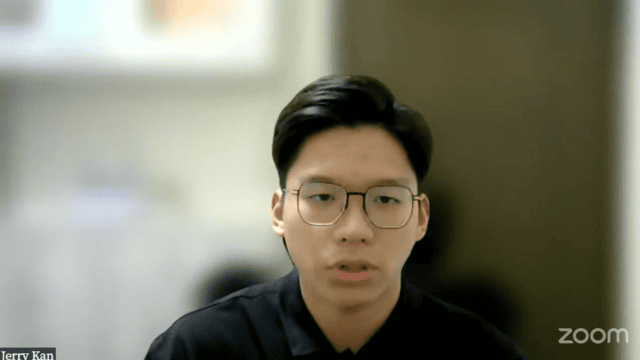
Luna Ho, an elementary school teacher, also mentioned other cases of tax persecution in Taiwan. She reminisced about her experience in 1996, when she suddenly learned from television that Tai Ji Men premises had been raided and its Shifu and others had been detained. She lost friends because of this, and initially did not know how to react and was even afraid of wearing her Tai Ji Men uniform in public. Only gradually and by continuing her activities as a dizi, also traveling to different countries with Dr. Hong, she learned the practice and power of peaceful but firm protest. She expressed the hope that more would join Tai Ji Men’s action for legal and tax reform so that the serious crisis of systemic tax injustice affecting all Taiwanese society may be solved.
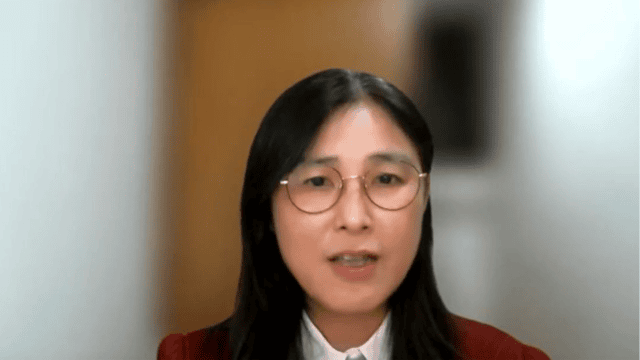
Joffrey Hung is a student from Taiwan currently attending university in Canada. Being exposed to a different culture, he said, helped him putting the multiple injustices of the Tai Ji Men case in perspective. He understood that tax persecution and denial of freedom of religion or belief, which hit Tai Ji Men in Taiwan, are one among many issues of violations of human rights occurring in the world. When he attended with his Shifu in 2018 the International Conference of Chief Justices of the World in India, Hung said, the slogan “We Are One!” deeply resonated with his persuasion that all human rights should be defended together.
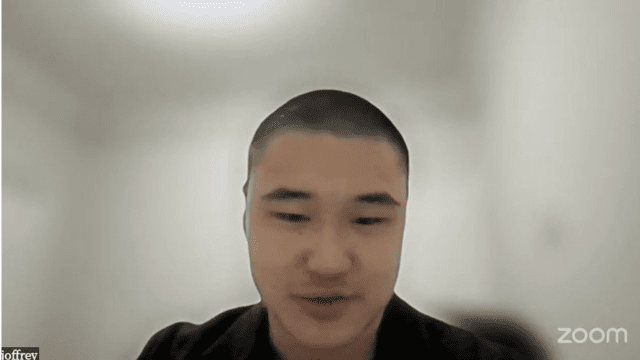
Wu Chih-Chung, vice president of a medical equipment manufacturing company, mentioned the philosopher Zhang Junmai, who was both a participant in the founding meeting of the United Nations and the main draftee of the Constitution of Taiwan. However, this Constitution was quickly suspended with the Martial Law and the White Terror. A by-product of this situation was the creation of a system of bonuses for those who reported real or imaginary spies. This system, Wu said, was the ancestor of the current practice of giving bonuses to tax bureaucrats who enforce, rightly or wrongly, tax bills. The practice played an obvious role in the fabricated Tai Ji Men tax case, Wu said. He called for his abolition and for a deep reform of Taiwan’s tax system, aligning it with the two UN Human Rights Covenants that Taiwan incorporated into its domestic law in 2009.
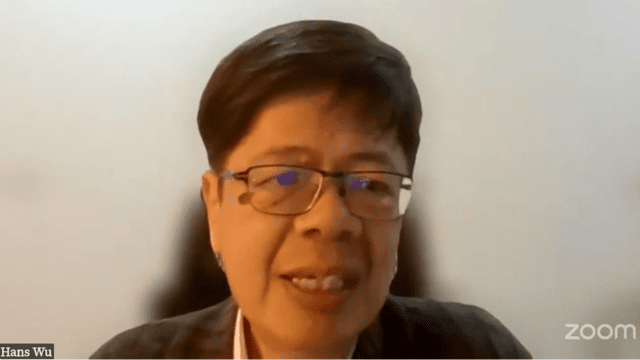
Marco Respinti, an Italian journalist and scholar and the director-in-charge of “Bitter Winter” offered the conclusions of the webinar. He noted that the need for a Human Rights Day is evidence in itself that they continue being violated throughout the world. They are breached in two ways, Respinti said: by violating them in practice and by maliciously re-defining the notion of human rights to justify their violations by tyrants and rogue bureaucrats. Both these attacks on human rights appeared in the Tai Ji Men case, Respinti noted, concluding that the case is so blatant that the United Nations should find ways to intervene on it, despite the fact that Taiwan is not a member state of the UN.
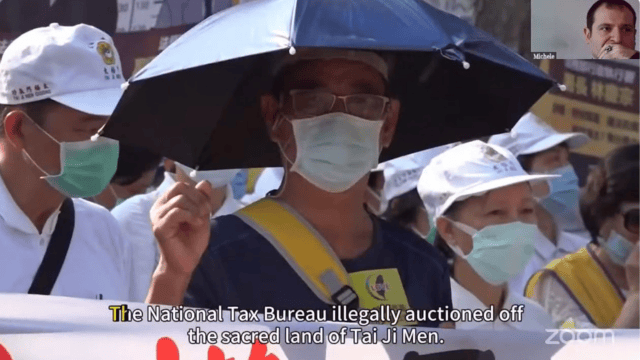
As usual, the webinar concluded with two musical videos, one celebrating human rights for all world citizens and one expressing through a song the truth on the Tai Ji Men case and the request for justice.

